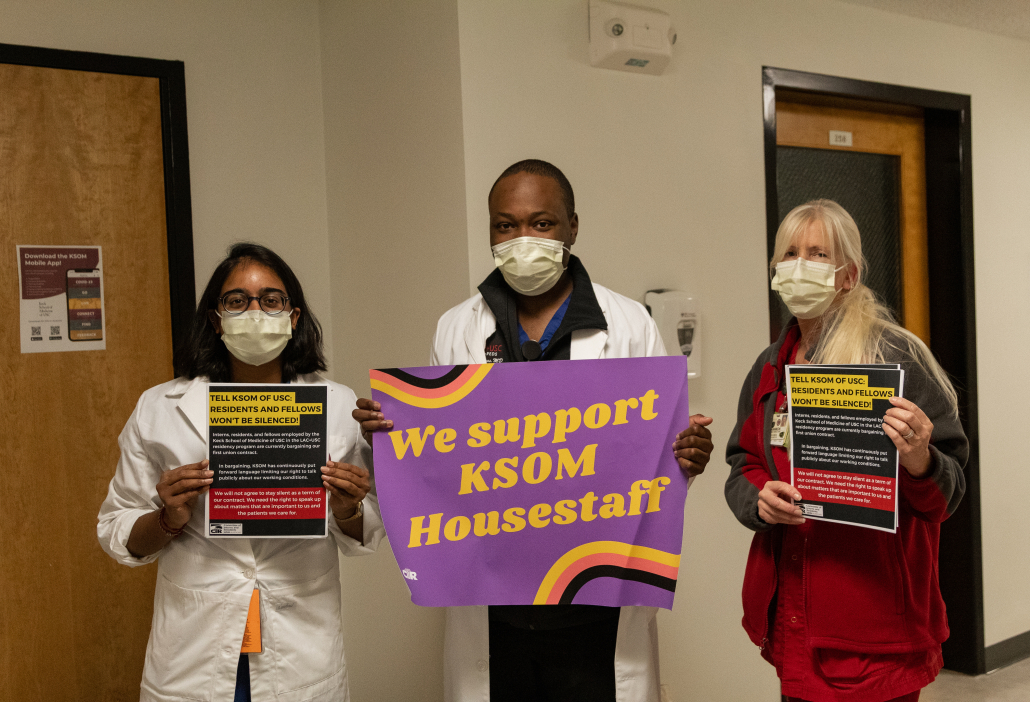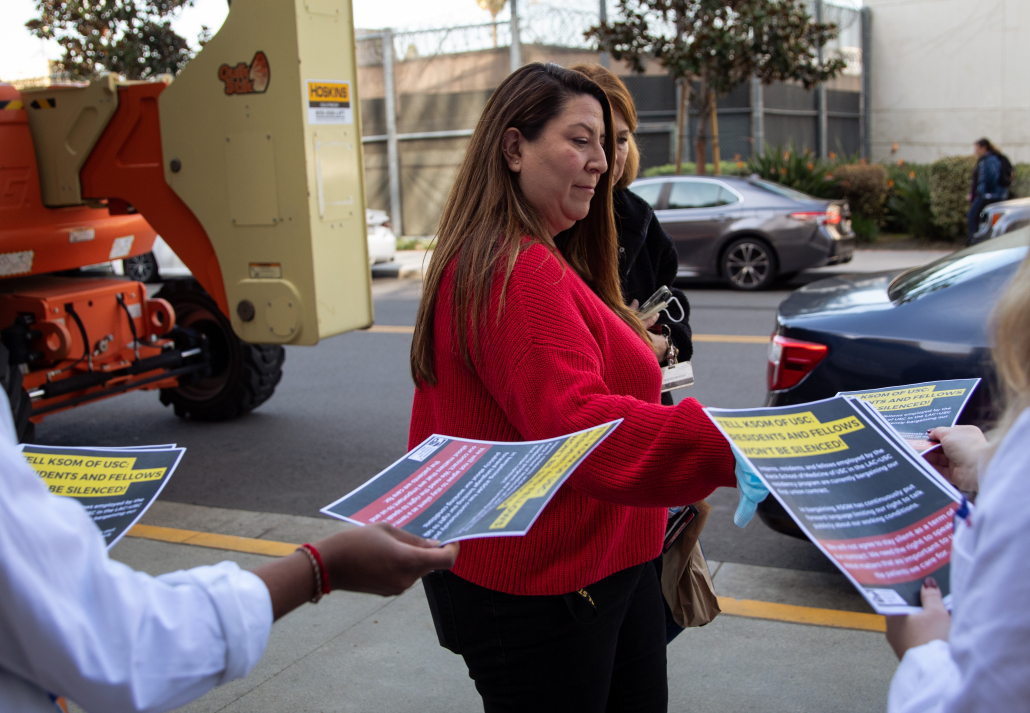Keck housestaff negotiate for contract

Some 90 interns, residents and fellows in the Los Angeles County + USC residency program receive, on average, $10,000 less in wages and benefits than the approximately 900 other interns working in the next room over. This gap isn’t based on residents’ level of experience or position in the program, but by the employer listed on their paycheck.
Residents in the program — working rotations at Keck Hospital, LAC+USC Medical Center and Cedars Sinai, among several other hospitals — are employed by either L.A. County or the Keck School of Medicine. Those employed by KSOM currently receive fewer pay, fewer health care benefits and a lower housing stipend than their colleagues employed by L.A. County, said Dr. Eduardo Fernandez, a hematology and medical oncology fellow at Keck.
While housestaff employed by L.A. County have long been represented by the Committee of Interns and Residents/Service Employees International Union, KSOM-employed housestaff only voted to unionize under CIR/SEIU in May 2022. In a unanimous vote, housestaff unionized to gain the ability to negotiate a “fair contract,” have a voice in the workplace, and level the wages and benefits offered to housestaff employed by L.A. County and KSOM.
“We work side by side, we do the same job … You still see the same patients, you work at the same places,” Fernandez said. “But because you’re paid by two different sources, and one that’s unionized, one traditionally was not — we didn’t actually have a contract — the pay amount was different and benefits were different.”
KSOM, CIR/SEIU communications specialist Sunyata Altenor said, has historically matched the housing allowances given to housestaff to the amount given by L.A. County. The allowances aim to supplement the cost of housing for residents amid rising housing prices in L.A. and its surrounding regions. This past year, Altenor said, the allowances weren’t matched: L.A. County paid out $10,000 housing stipends, while KSOM paid out $6,000 stipends.
“We believe that there is a clear correlation between residents forming a union and the Keck School of Medicine suddenly changing their past practice,” Altenor said.

In a statement to the Daily Trojan Thursday, the University, which houses KSOM, wrote that L.A. County-employed housestaff reached a contract after several months of bargaining for improved working conditions and better pay. Following the election of CIR/SEIU to represent KSOM-employed housestaff, “any changes to wages and benefits must be bargained,” the statement read.
The decision to employ certain residents under L.A. County and others under KSOM is “arbitrary,” Fernandez said, as applicants matched to the LAC+USC residency program are assigned to either employer at “random.” In some departments, the majority of residents are employed by KSOM, but most departments are composed of several KSOM-employed residents and a majority of L.A. County-employed residents.
“I don’t think that people would have a problem with it being random, so long as the wages and working conditions were equal,” Altenor said. “That’s what we’re trying to rectify this year.”
Negotiations for a contract between KSOM-employed residents and KSOM began in October following months of management postponing sessions that were expected to start in August, Altenor told the Daily Trojan. The parties are meeting every two weeks, though little movement has been seen on the part of management, she said. In negotiations Dec. 20, housestaff presented economic proposals, to which KSOM has yet to respond.
“We are currently engaged in collective bargaining with the union and are committed to bargaining in good faith,” the University wrote in its statement.
About five KSOM-employed residents and allies distributed fliers outside of Norris Hospital Thursday afternoon to spread awareness of the ongoing contract negotiations and the residents’ concerns about unequal pay and benefits.
Emma Lantos, an OB-GYN fellow employed by KSOM, said that in negotiations, KSOM has argued against residents’ rights to flier and speak out about the negotiations. The fliers, Lantos said, were aimed at individuals who hold the power to control the negotiations’ outcome.
“We are trying to have a fair contract and we are being silenced in doing that,” Lantos said. “We just wanted to make sure that people knew that that was happening.”

